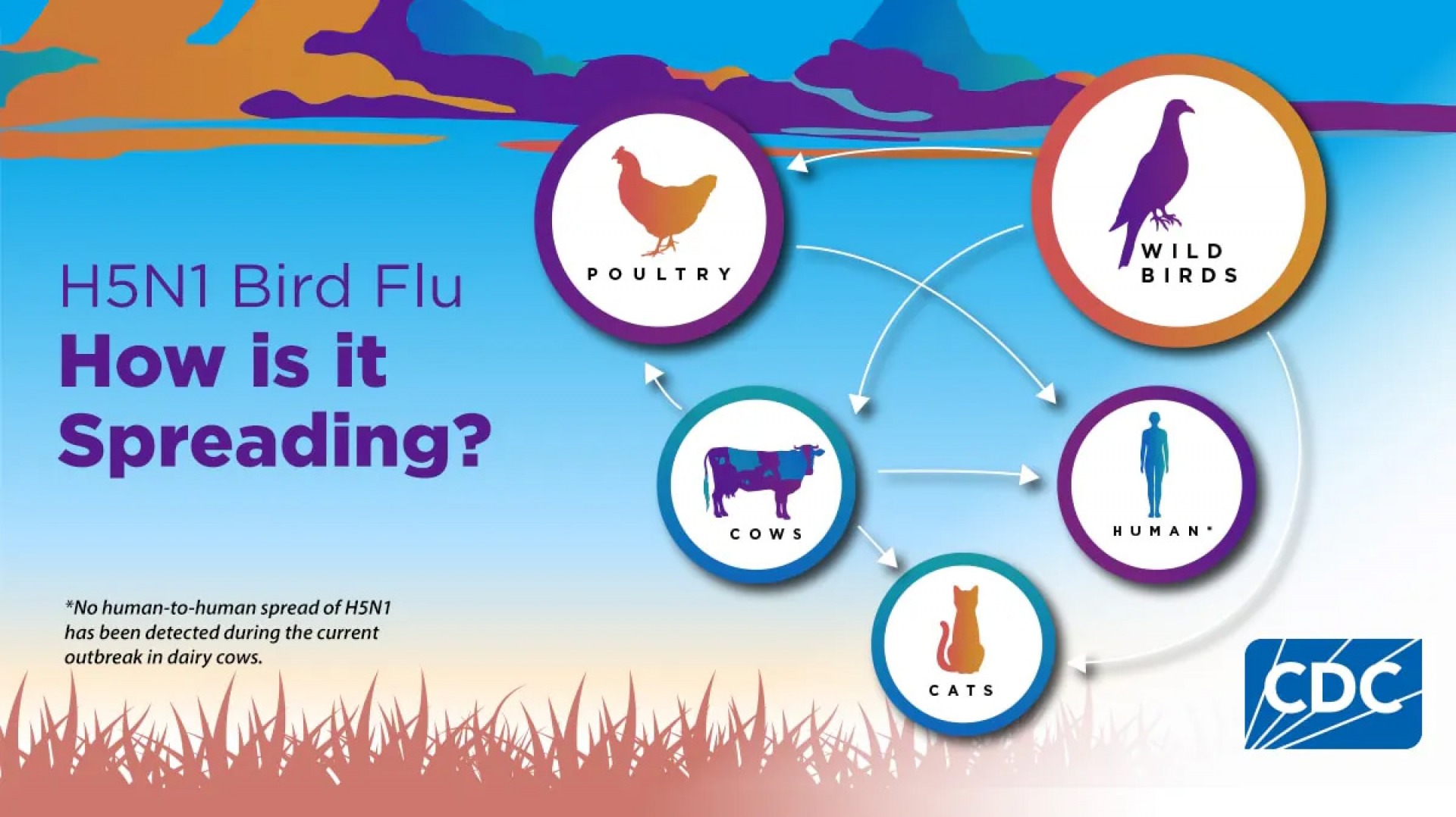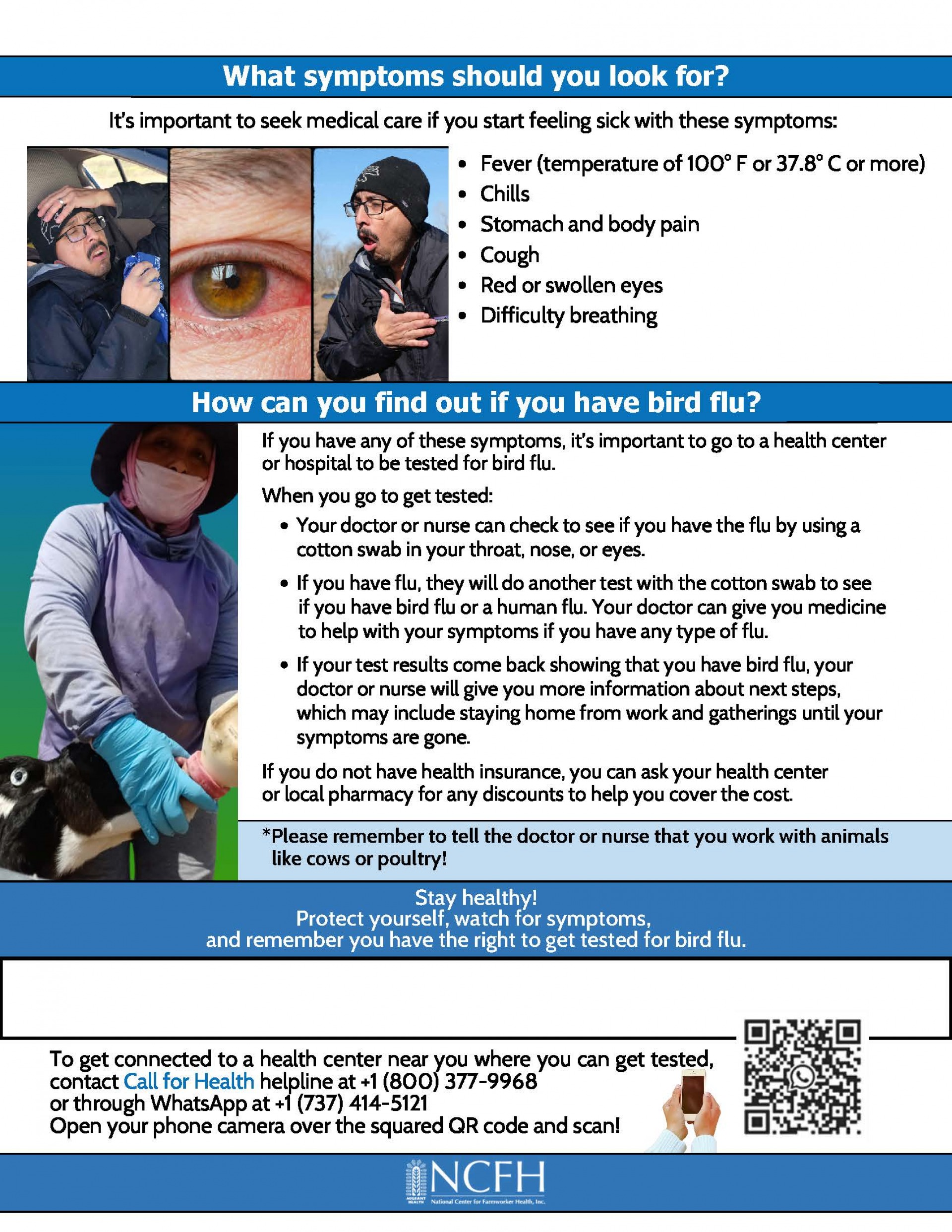Avian Influenza (HPAI)
For the most current and up to date information regarding H5 Bird Flu Click Here.

What is Bird Flu?
Bird flu, also known as Avian Influenza, is a viral infection that primarily affects birds but can occasionally spread to humans and other animals. Wild birds like ducks and geese can carry the virus without showing symptoms, but when it spreads to domesticated birds such as chickens, turkeys, and ducks, it can cause severe illness and death.
Who Does Bird Flu Affect?
-
Birds: Wild and domesticated birds are the main carriers. The virus is highly contagious among poultry, often leading to serious outbreaks that can devastate flocks.
-
Humans: While rare, humans can contract bird flu, typically through direct contact with infected birds, their droppings, feathers, or contaminated surfaces. People who work closely with birds, like farmers, poultry workers, and veterinarians, are at higher risk.
-
Livestock: The CDC has raised concerns about the potential risk to dairy farmers, as cows can be indirectly affected through contamination. Bird flu can also impact other livestock if they come into contact with infected birds or their droppings.
-
Other Animals: Occasionally, the virus can spread to other animals, including pigs, cats, and even dogs.
Symptoms in Humans
Symptoms can vary from mild to severe and may include fever, cough, sore throat, muscle aches, and in more serious cases, severe respiratory issues like pneumonia. Early detection and treatment are crucial to prevent complications.
Why It’s Important to Protect Yourself and Your Animals
Protecting yourself, your family, and your livestock from bird flu is essential to prevent the spread of this virus, which can have severe economic and health impacts on farms. Here's why prevention is key:
- Prevent Farm Outbreaks: An outbreak can lead to significant losses, as entire flocks may need to be culled to stop the spread. This can severely affect farm income and livelihoods.
- Protect Your Health: Farmers are on the front lines of exposure, especially those who work with poultry or in environments where birds are present. Taking precautions can prevent human infection.
- Protect Other Livestock: While bird flu primarily affects birds, cross-contamination can put other animals, including cows, at risk, particularly if they share feeding areas or water sources with wild birds.
The Importance of Seasonal Flu Vaccination
Getting your seasonal flu vaccine is a key step in protecting your health. The CDC recommends flu vaccines to reduce the risk of co-infection with both seasonal flu and bird flu, which can lead to more severe illness. Vaccination helps:
- Strengthen Your Immune System: A seasonal flu shot can reduce your chances of contracting the regular flu, which in turn can lower your risk of complications if exposed to bird flu.
- Protect Vulnerable Populations: Farmers, poultry workers, and others at higher risk of bird flu exposure should prioritize getting vaccinated to reduce overall illness and co-infection risks.
How to Stay Safe
- Use Personal Protective Equipment (PPE): If you work with birds or other livestock, always wear PPE, such as gloves, masks, and protective clothing, to reduce the risk of exposure.
- Practice Good Hygiene: Wash your hands thoroughly with soap and water after handling birds or working in their environment. Clean and disinfect equipment and surfaces regularly.
- Secure Your Farm: Limit access to poultry areas and keep wild birds away from livestock by using nets or enclosures. Properly dispose of dead birds and animal waste.
- Cook Poultry and Eggs Thoroughly: Make sure all poultry products are cooked to a safe temperature to kill any potential virus.
If you suspect an outbreak on your farm or experience symptoms, seek immediate veterinary or medical assistance.

Map · Jones County Public Health
105 Broadway Pl. · Anamosa, IA 52205


